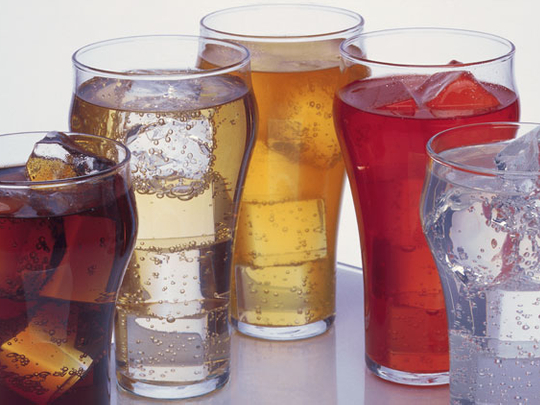
Dubai: The dangers of soft drink consumption in young children have far from fizzled out with an international study in August linking consumption with behavioural problems.
Paediatric and nutrition specialists in the UAE echoed the same concern. They told Gulf News that they see the negative effects of soft drink consumption in young children. They believe that more awareness is needed to tackle the habit.
Soft drink consumption is not only associated with obesity — with the UAE battling the weight problem in both the adult and young population — but with behavioural problems such as aggression.
Available 2011 figures from a nationwide survey of Emirati and expatriate schoolchildren by the Ministry of Health said 15.5 per cent are obese, 39.2 per cent are overweight and a worrying 21 per cent consume fast food three times or more a day.
Further, a paper in the American Journal of Public Health ranked the UAE as the fifth highest consumer of soft drink consumption in the world with 27.3 gallons. (The data is from 1997 to 2010; leading consumers were the US, Mexico and Argentina.) The study, assessing approximately 3,000 children aged five, and scheduled for publication in The Journal of Paediatrics, says that aggression, attention problems, and withdrawal behaviour are all associated with soft drink consumption in young children.
The study proposes limiting or eliminating a child’s soft drink consumption which may reduce behavioural problems.
The findings suggest that children who drank four or more soft drinks per day were more than twice as likely to destroy things belonging to others, get into fights, and physically attack people. They also had increased attention problems and withdrawal behaviour compared with those who did not consume soft drinks.
Dr Riham Ammar, Medical Director and Specialist Paediatrician at Al Das Medical Clinic in Dubai, said that the content of soft drinks includes caffeine, artificial food colours and high levels of sugar.
She said: “Apart from the health problems such as obesity, dental caries and digestive conditions, ingredients in fizzy drinks are known to cause hyperactivity, lack of concentration and difficulty in sleeping. Excessive consumption can be detrimental.”
Dr Riham estimates that children who are allowed soft drinks, which can be dangerous, consume a minimum of five per week.
“Only a few parents fully understand the dangers and eliminate soft drinks altogether. The junk food culture increases cravings for high sugar food and drink.”
Stressing the need for more awareness, Dr Mascha Lindemann, German-board certified General Paediatrician at Medwin Medical Centre in Dubai, said: “The culture of consuming soft drinks at fast-food outlets and movie theatres as well as the attitude towards soft drink consumption has to change. I know parents who have a difficult time controlling and calming their kids after sugary drinks and foods.”
Bernadette Abraham, Fitness and Nutrition Expert in Dubai, said: “What parents must realise is that sugars found in sodas are not the only harmful ingredients to eliminate. Chemical additives beginning with the letter E should also be avoided as much as possible.
“What most consumers don’t know is that the approval process for determining whether or not a chemical additive is safe for human consumption or not is based on the average adult intake and is tested on its own. The reality is, today’s children are consuming a concoction of various chemicals and their effects are now being studied and documented.”










